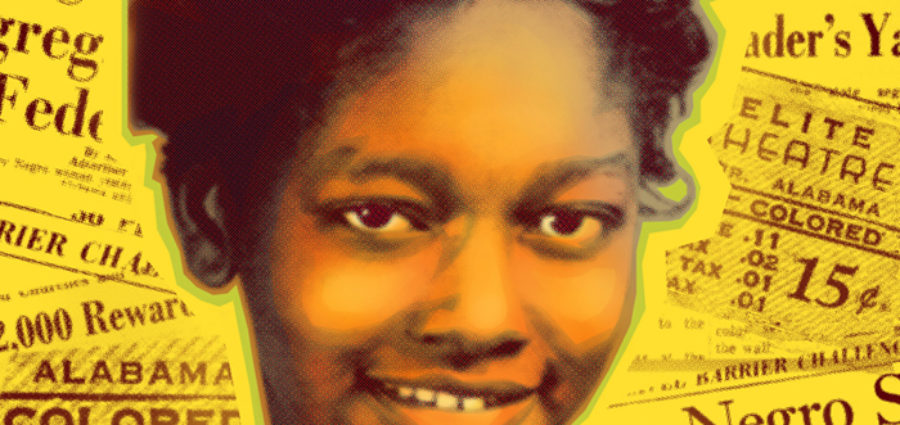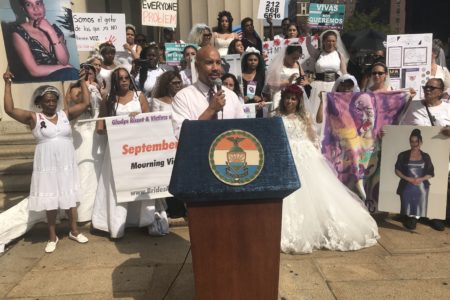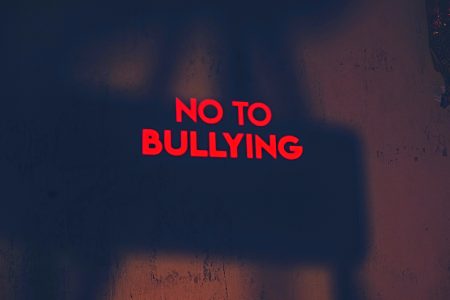On Tuesday, November 17, both Hoose and Colvin, who now lives in the Bronx, will be on-hand to speak about the book, Claudette Colvin: Twice Towards Justice, during the 11th Annual National Book Awards Teen Press Conference, an event that gives more than 250 middle and high school students the chance to engage authors nominated for the National Book Award in Young People’s Literature with questions on the nominated works and to learn from the Finalists first-hand about books that changed their own lives as children.
In Claudette Colvin: Twice Towards Justice (Farrar, Straus and Giroux / Melanie Kroupa Books / Feb 2, 2009) National Book Award finalist Phillip Hoose introduces readers to a little-known but crucial figure in America’s civil rights movement – young woman whose bravery paved the way for the end of bus segregation.
Readers join Claudette on March 2, 1955, in Montgomery, Alabama, when the impassioned African-American teenager, fed up with the daily injustices of Jim Crow segregation, refuses to give her seat to a white woman on a segregated bus and is arrested. “Rebellion was on my mind that day,” says Ms. Colvin. “All during Negro History Week—in fact, for the entire month—we’d been talking about people who had taken stands. We had been studying the Constitution . . . I hadn’t planned it out, but my decision was built on a lifetime of nasty experiences.”
Instead of being celebrated as Rosa Parks would be just nine months later, fifteen-year-old Claudette is shunned by her classmates and dismissed by community leaders. Undeterred, a year later she challenges the system for a second time as a key plaintiff in Browder v. Gayle, the landmark case that helped strike down the segregation laws of Montgomery. During her journey, Claudette would meet Rosa Parks and Dr. Martin Luther King, whose kind words to Claudette for her contribution to the civil rights movement would stay with her forever.
Based on extensive interviews with Claudette and many others, Mr. Hoose presents the first in-depth account of this important early civil rights contributor. He skillfully weaves Claudette’s dramatic story into the fabric of the historic Montgomery bus boycott, juxtaposing her own words with the events of the day. Photos throughout the book also show, in heart-wrenching images, the daily indignities faced by African-Americans living in the Jim Crow South.
Mr. Hoose says, “More than any story I know, Claudette Colvin’s life story shows how history is made up of objective facts and personal truths, braided together. In this case, a girl raised in poverty by a strong, loving family twice risked her personal safety—probably her life—to gain justice for her people. Claudette is a wise woman who, when she was a smart, angry teenager, made contributions to human rights far too important ever to be forgotten.”
While current national discussions on race are front -and- center, this snapshot of a race relations pioneer is a timely, revealing story. And during an election season when teenagers are proving politically active and socially conscious, Claudette’s story will show young people that, no matter how relatively inexperienced they are or how great the odds against them may be, they CAN make a difference and bring about positive social change.
Phillip Hoose is the author of several books for young readers. His distinguished nonfiction includes the National Book Award Finalist We Were There, Too!: Young People in U.S. History and The Race to Save the Lord God Bird, winner of the Boston Globe–Horn Book Award for Nonfiction. He lives in Portland, ME.








